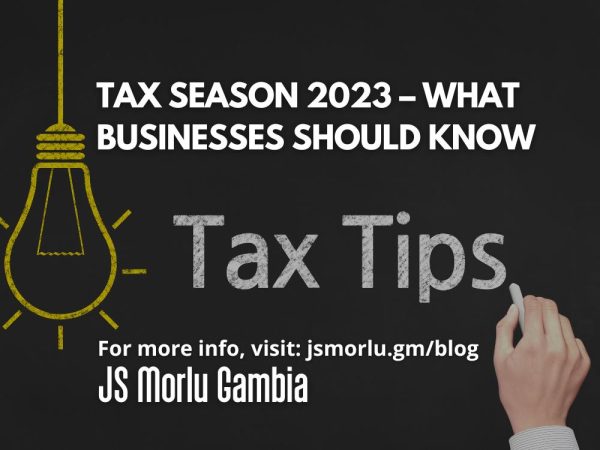
With tax season fast approaching, experts at iKhokha have given eight tips to help businesses get through the stressful period.
Tax season in South Africa is set to kick off on Friday, July 7 2023.
The South African Revenue Service (SARS) has already updated its mobile filing platform in preparation for the season and has started to populate taxpayer profiles with available third-party data.
“Tax is a subject that, at best, will illicit yawns and cause eyes to glaze over and, at worse, cause stress, anger or panic,” iKhokha said.
Amidst the fear of filing tax returns, iKhokha gave the following tips to help businesses save money, access benefits, and comply with the law.
1. Register Your Business With SARS
Obviously, the first step for a business is to register with the Company and Intellectual Property Commission (CIPC).
Applications can be made online, and the minimum registration fee is R125, with an additional R50 to reserve a chosen name for the company.
Once registered, the CIPC will issue a Company Income Tax reference number that will be used with SARS, which is also used when registering for eFiling.
2. Pay on Time to Avoid Back Taxes Penalties
Businesses must ensure their tax returns are filed before the deadline to avoid penalties.
Tax season will open on July 7 this year and will likely end in November – SARS is yet to announce when it will close.
Provisional taxpayers must pay their first instalment in February, with their second in August.
Those who qualify and are registered for turnover tax must file their returns within two months of the company’s financial year-end.
Although SARS used to only be able to issue penalties if there were two or more outstanding returns, a law change in 2021 allows the tax collector to penalise those with only one outstanding return.
Penalties range from R250 for taxable income loss less than R250,000 to a fine of R16,000 for taxable income loss of over R50 million – these are monthly penalties.
3. Register for Turnover Tax
Micro businesses with an annual turnover of less than R1 million qualify for turnover tax, which is a simpler tax system without all the red tape that may be challenging for a small business to manage.
“Think of turnover tax as SARS lending a helping hand to small businesses to reduce their tax expenses, iKhokha said.
Turnover tax replaces income tax, VAT, provisional tax, capital gains tax and dividends tax.
Moreover, instead of a normal business tax system where tax is calculated against a percentage of profit, turnaround tax is calculated against the turnover of the business.
However, businesses will still need to pay employee tax and unemployment insurance fund (UIF) contributions.
4. Take Advantage of Tax Benefits for Small Businesses
SARS sees companies who earn less than R20 million per year as a Small Business Corporation (SBC).
Most companies usually have an income tax rate of 27%, whilst SBCs qualify for significantly reduced rates.
For instance, income of R91,250 or less is subject to a 0% tax rate.
5. Take Advantage of Deductibles
Businesses can also claim deductible expenses, which fall into several categories:
Day-To-Day Expenses:
- Rent
- Water
- Electricity
- Telephone bills
- Internet
- Office equipment
- Stationery
- Cleaning costs
- Software subscriptions
- Staff salaries
- Travel and transport
- Marketing and advertising costs
- Accounting fees
- Legal expenses
- Educational Expenses
- Entertainment Expenses
These expenses are slightly more controversial as many falsely claim non-business-related entertainment expenses. However, SARS requires businesses to prove that the expenses were indeed businesses related, like taking a client to a restaurant.
Capital Expenses
These are once-off expenses, such as equipment, furniture, cars and office renovations.
Other Expenses
These include the following:
- Start-up expenses can be anything you spend on starting your business before it becomes active.
- Donations to charities with a Public Benefit Organisation number.
- Contributions you made to saving for your retirement, such as retirement annuities.
6. Solar Tax Break
In response to the nation’s energy crisis, businesses can qualify for a 125% tax deduction on assets used to generate renewable energy.
This means that businesses can reduce their taxable income by 125% of the cost of an investment in renewable energy, which can be claimed over one or three years.
7. Stay Above Board with Employee Taxes
Pay as Your Earn (PAYE) is the income tax system where the employer deducts tax from their employee’s salary and pays it to SARS.
Although it limits the administrative burden on employees, it can become complicated for businesses, especially when factoring in overtime, bonuses and commission.
All employees younger than 65 and who earn more than R91 250 a year must pay tax.
Employers are also legally required to issue their employees with payslips.
Taking PAYE off staff salaries but not paying SARS will result in heavy penalties and even jail time.
8. Don’t Try to Avoid Paying Tax
There are several types of tax crime in South Africa:
- Failing to declare income or failing to pay tax on this income
- Lying about expenses
- Deducting tax from employee salaries and failing to pay it to SARS
- Failing to submit tax returns
- Charging VAT but failing to send it over to SARS
- Submitting fraudulent invoices
- Failing to register for tax purposes
- SARS says that those who do not adhere to the tax system will face criminal prosecution and maximum non-compliance penalties.
Original Source: Business Tech
